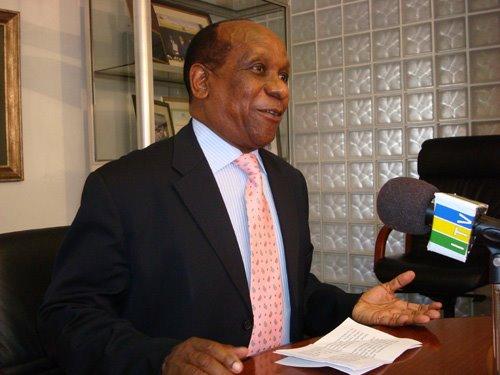29th August 2012

Tanzania: Britain increasingly accepting of partnership with corrupt government – By Sarah Hermitage
The BAE ‘saga’ – which involved the sale of a military air traffic control system to the Tanzanian government in 2001 in a deal that was blatantly corrupt* – raised its ugly head again last week with the Tanzanian media hurling unsavoury accusations against the British government over its handling of the scandal.
On 12th August the high profile English daily newspaper the Guardian (part of the IPP Media group owned by Tanzanian media tycoon Reginald Mengi) accused the British government of various forms of corruption and hypocrisy by failing to prosecute British citizens who the writer states were involved in the scandal. The article entitled ‘Radar scandal: Few are fooled by the UK`s public statements’ takes no prisoners with even the British High Commission in Dar es Salaam coming under attack. The writer accuses the British government of corruption and perverting the course of justice by ‘…shielding three top suspects who received a chunk of the radar bribery billions from being prosecuted.’
Reminiscent perhaps of IPP Media’s Sharks of Corruption publications in 2009, where five Tanzanians of Asian origin considered to be the most corrupt in Tanzania were named, the Guardian article (by-lined simply to an Editor) specifically names the British Citizens it states should be arrested: a risky move perhaps and one that might prove costly if the statements are proved to be less than accurate.
This poorly written tirade follows an equally bizarre publication by the Daily News where Tanzania’s most senior anti-corruption Tsar Edward Hosea was quoted as stating no Tanzanian was involved in the scandal – a statement that was never rebutted.
Whilst some within Tanzania seem focused on turning the BAE scandal from a serious issue of corruption into an issue of colonial reparation, the more serious side to the story is the fact that the British government appears increasingly accepting of partnership with an overtly corrupt government. Tanzania is aid dependent and the Britain is its largest bilateral donor through the Department for International Development (DfID).
In its 2012 operational plan for Tanzania, DfID states that it:
‘.. is committed to being a global leader on transparency. In the current financial climate, we have a particular duty to show that we are achieving value for every pound of UK taxpayers’ money that we spend on development. Results, transparency and accountability are our watchwords and guide everything we do. DFID regards transparency as fundamental to improving its accountability to UK citizens and to improving accountability to citizens in the countries in which it works. Transparency will also help us achieve more value for money in the programmes we deliver and will improve the effectiveness of aid in reducing poverty.’
Yet, in the face of this commitment, DfID seems more and more willing to accept the evidence of corruption in Tanzania by increasing aid.
As Daniel Kaufman, former Director at the World Bank remarks, “The idea that donors can immunise their projects in a corrupt country is absurd, it’s not what the evidence shows. When there is no integrity on the part of leadership, no systematic approach to governance, civil liberties, rule of law, donor aid is simply wasted”.
The British government has failed to comment on the criticism vented by the Guardian on the 12th August. Likewise, it has failed to comment on the savage beating of Dr Ulimboka – spokesperson for an ongoing Doctors strike in Tanzania – on the 26th June, when he was abducted and found the following day, badly beaten and left for dead. Nor has it commented on the closure of MwanaHalisi newspaper, which suggested that the Tanzanian government was behind the attack.
This ‘blind eye’ approach to the evidence of an increasingly corrupt regime, heavily supported by the British tax payer, adds to the argument that British aid is now less about sustainable development and the poor than it is about British commercial interests in mineral resources, oil and gas. This is a dangerous path to tread and one which will necessarily lead to the erosion of good governance and civil society. It is perhaps poignant to note that rumours abound this week that African Barrick Gold – Tanzania’s largest gold producer – is pulling out of Tanzania and selling its mining interests to the Chinese state owned company China National Gold.
In 2012, after the involvement of the British Courts and the Serious Fraud Office (SFO) BAE Systems was compelled to pay £29.5 million directly to the Tanzanian government (for the benefit of the Tanzanian people) for accounting misdemeanors. No Tanzanian has been held to account for any part of the scandal and there has been a denial from the Tanzanian government that any of its citizens were involved.
Both DfID and the British parliamentary committee on aid took credit for achieving payment of this vast sum to the Tanzanian government rather than to NGOs or other more direct channels. Sir Edward Clay, a former British high commissioner to Kenya, publicly charged both DfID and the Committee with complicity in this outcome. Neither ministers nor MPs responded to his challenge. Too embarrassed, perhaps?
If it is DfID’s guarantee to make UK aid fully transparent to citizens in both the UK and developing countries, then those same citizens deserve better than this when the British Tax payer had to foot the bill of a costly enquiry into the BAE saga by the SFO and the parliamentary International Development Committee.
*A deal which the former Secretary of State for International Development, Clare Short, described as ‘squalid.’
Sarah Hermitage is a British Lawyer and anti-corruption activist: http://thesilverdalecase.blogspot.co.uk/

No comments:
Post a Comment